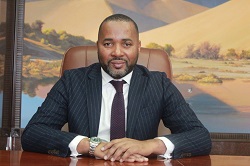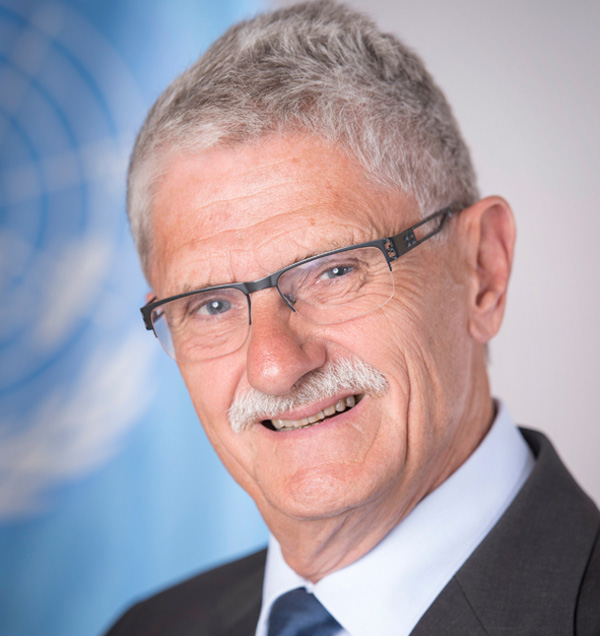
We should continue with the heritage of unity and tolerance

By Alfredo Tjiurimo Hengari
Press Secretary, Namibian Presidency.
“A lie can travel halfway around the world while the truth is still putting on its shoes”, is a quote attributed to the American writer Mark Twain, when in essence the original line comes from the Irish pamphleteer Jonathan Swift.
In that irony about the phrase regarding a lie perpetuated through a lie, the point is, some of the prominent among us (politicians and analysts) are dangerously gambling with the cohesion and unity of the Namibian people.
When the adverse is true, they are telling the lie and false narrative that nation building is a fluke and ours is a country in a Hobbesian state of nature of tribalism, racism, divisions and regionalism. Woefully, they are normalizing agitating for the race and the tribe, and not the nation and the Republic with its enduring ideals of Unity, Liberty and Justice.
Progressive Namibians should stand up to defy such attempts to reverse the gains of the 30-year nation building project, constructed out of the fatalistic Apartheid mess of ethnic homelands. To do so, it helps to gaze into history as a guidepost to deal with a daunting presence and to craft an inspiring future of prosperity for the majority.
On 18 July 2020, Namibians commemorated the 50th anniversary of the death of Chief Hosea Kutako. In light of the values Kutako exhorted, his death at the time was not only a matter of national importance, but also of global consequence. The New York Times ran an obituary two days later on 20 July 1970, stressing the importance of Chief Kutako as a consequential leader, a survivor of genocide, a nationalist and a petitioner to the United Nations who agitated for the independence of Namibia. Today, a bust bearing his intense face sits at the entrance of the United Nations Headquarters in New York.
During his purposeful life, Chief Kutako worked capably for the unity of Namibians, and showed the way for a succeeding generation of freedom fighters, including Founding President Sam Nujoma, Hifikepunye Pohamba, Hage G. Geingob, Theo-Ben Gurirab, Hidipo Hamutenya, Peter Nanyemba, Libertine Amadhila, Moses Makue Garoeb, Mose Tjitendero, Peter Katjavivi, Brendan Simbwaye and many others.
Before Chief Kutako, a preceding generation of brave Namibians fought justly for our self-determination against the brutality of German and South African occupation. For these courageous deeds, on 26 August 2002, the Republic solemnly honored nine heroes at the inauguration of Heroes’ Acre in the undulant hills in the south of Windhoek.
The nine heroes including Chief Kutako are among others Kaptein Hendrik Witbooi, Chief Kahimemua Nguvauva, Chief Nehale Lya Mpingana, Chief Samuel Maharero, Chief Jacob Morenga, Anna Mungunda, Chief Mandume Ndemufayo and Chief Ipumbu Ya Tshilongo. These outstanding Namibians fought occupying forces in fluid, but socially constructed ethnic geographies. But the moral and material victories that have accrued have been to the benefit of a national history of development and nation building since 1990.
Unquestionably, the idea that a nation was to be born from the incongruent wars of primary resistance found urgency in the broad assembly and national character of the liberation movement, SWAPO.
For that reason, our three decades of peace, unity and development cannot be disconnected from the conviction of the founders of our Republic that our nation had to be united and just. In that vein, in order to continue winning the war of the present and the future, it goes better with saying that we should better diagnose the threats and opportunities to our unity and progress, whilst harnessing our strengths to win the future. In that vein, the expansion of economic opportunities for the majority is our key challenge. It should not be lost in excessive tribal bean counting.
After all, our strength has been unity and the ability of the majority of Namibians to look beyond tribalism and racism in our nation-building project. This type of Namibian has been tangibly manifested in the person of the third President Hage G. Geingob who with broadmindedness forcefully and intentionally cultivates in deeds and in words the ideals of One Namibia, One Nation.
Through the rejection of tribalism, racism and regionalism, in the canvas of President Geingob, we epitomize the tolerant and unifying project we had aspired to in 1990. In fact, in the third President, the unifying vision of Kaptein Witbooi, the generation of the early resistance fighters and the founders of our Republic, including Sam Nujoma has come full circle. Going forward, what does it mean?
Simply put, we have to continue with the work of building a Namibian House and its foundational heritage of unity and tolerance. Yes, the setting of nation building is never perfect and challenges will always be encountered en route to its envisioned perfection. However, it is essential that even during our dark journeys as a Republic, we should remain firm in our conviction about the rightness of the nation above tribal agendas. Collectively, we need to summon our moral, material and intellectual resources to correctly identify and to diagnose challenges as they present themselves and find adequate interventions.
Without undermining its ugly head, it is dangerously shortsighted to overstretch tribalism to a higher canon, and as an explanation for every decision or omission. For example, the economic downturn occasioned by the global commodity crisis since 2013 and Covid-19 in 2020 as phenomena have not been fully appreciated by playful analysts, thin editorials in the media and some in the political elite.
The problem at a conceptual level is not tribalism per se, but it is intolerance, which manifests itself in many ways without condemnation on the part of many. In fact, some in partisan civil society and the activist media fuel intolerance by selecting, which “wrongs and by whom” are deserving of indignation and not the principle of the “wrong” irrespective of who commits it. All of us have a responsibility to take a stand against those of prominence who have weaponised media, including social media to insult and to defame.
In his terrific book Cosmopolitanism: Ethics in a World of Strangers, the philosopher Kwame Anthony Appiah advises, “we should learn about people in other places, take an interest in their civilizations, their arguments, their errors, their achievements, not because that will bring us to agreement, but because it will help us get used to one another.” We should as Appiah says learn how to live with one another and with tolerance. As President Geingob says, “we can disagree without being disagreeable”.
Irrespective of the unwelcome diversions, we should be unequivocal about our journey of inclusivity and unity, and remain focused on dealing with the key challenges of the day – unemployment and economic growth. As citizens, by continuing with the heritage of unity and tolerance at this critical juncture in our history, as the great Kaptein Witbooi and Chief Kutako would have preferred, we expedite responses to these key challenges of the day.










































